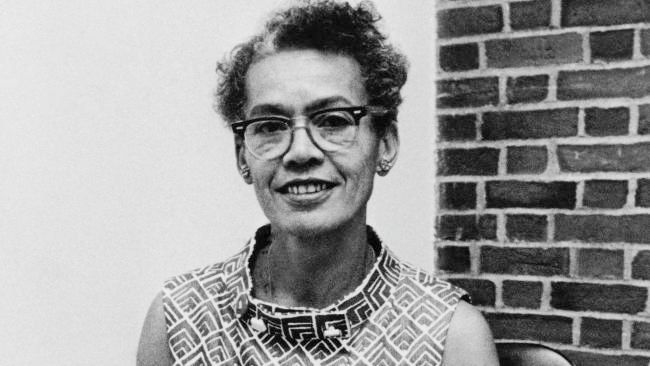Why Black History Month Must Be Intersectional
 |
| Pauli Murray |
In the rapid span of 28 days, we maintain a solid focus on our most notable black figures. But in order to make Black History Month inclusive of all black voices, big and small, we must embrace intersectionality, the study of how multiple systems of oppression intersect to create varied human experiences.
For the study of blackness in particular, intersectionality means acknowledging how race interacts with gender, sexuality, ability, economics, and other social categories to create multidimensional black experiences that are often stigmatized and ignored.
1. Seek Education on Silenced Leaders:
Though films like Selma have brought light to little known leaders like Diane Nash and Annie Lee Cooper, Black History Month has historically been concentrated on the contributions of black heterosexual middle class men. Challenge yourself to discover other pivotal leaders that don’t occupy these common identities.
Consider black women like Pauli Murray who used legal studies to combat racial segregation and gender discrimination in the 1950s and 60s or black LGBT leaders like Bayard Rustin who was the primary organizer of the iconic March on Washington.
This shift in focus does not mean we should ignore well-known leaders. In fact, this month should also include education that digs deeper into the ideologies of our popular leaders. Many of them not only fought for racial equality, but to address the varying intersecting oppressions that blacks face as well. Martin Luther King Jr.'s devotion to poverty and the working rights of black sanitation workers towards the end of his life is just one example.
2. Celebrate their accomplishments:
Spread the news of Murray, Rustin, and other unsung heroes in the classroom, at work, in church, and every social space you enter. Use social media to share facts about these leaders, to quote them, to show their faces, and tell their stories. Take every opportunity to grant unrestricted access to lost black narratives.
Publicly honoring these leaders is not just symbolic; it boosts our sense of purpose as a people. As black women, when we gain access to the stories of revolutionary black women leaders, we see potential within ourselves to be change agents, too. Such access to role models should be made available to all black communities, especially those who are rarely presented with heroes that share their identity.
3. Prepare to make new Black History:
Honoring the past is frivolous if we fail to apply its lessons to the future. If Black History Month teaches us anything, it’s to use history as a blueprint for continuing the courageous strides towards freedom that our ancestors set forth.
Daily life can be a discouraging reminder of history’s tendency to repeat. We still witness the unjustified murders of black youth, the sexual exploitation and degradation of black women, and other heinous wrongdoings motivated by racism and prejudice. But we can only claim progress if our steps towards racial equality account for the needs of all black lives.
Plan how to further your commitment to varied black experiences post-February. Become an ally for black working class families. Make an effort to spread awareness about black LGBT rights in spaces where such lives are devalued. Make a pact to be a shoulder for black trans lives to lean on. Leave your legacy by being active in the dream towards ultimate black freedom.
Each year we have a distinct opportunity to expand the black narrative. For Black History Month 2015, let’s resurrect, honor, and strive to learn from the forgotten pages of our past and present.
Photo: AP
Courtney Taylor is a senior English-Creative Writing major at Agnes Scott College in Atlanta, GA. She is an editorial intern at For Harriet. Follow her on Twitter @thecourtcase

No comments: